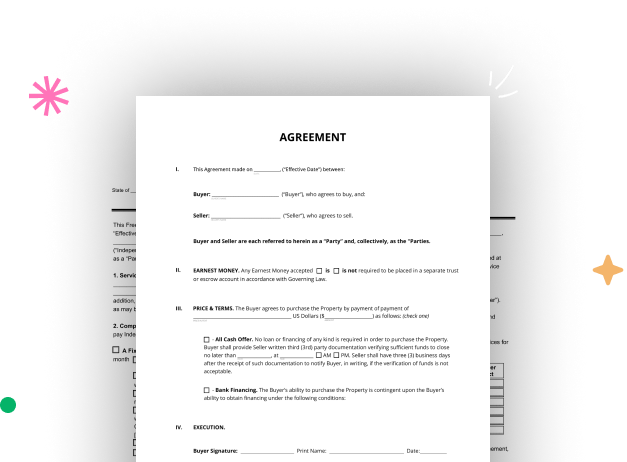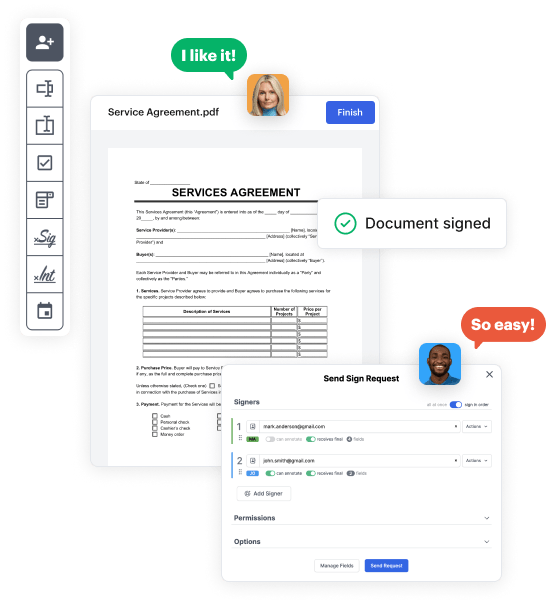

First, sign in to your DocHub account. If you don't have one, you can easily register for free.
Once you’re in, navigate to your dashboard. This is your primary hub for all document-centric operations.
In your dashboard, choose New Document in the upper left corner. Hit Create Blank Document to design the NC Quitclaim Deed Form from scratch.
Place numerous elements like text boxes, images, signature fields, and other interactive areas to your template and assign these fields to intended individuals as required.
Refine your form by including walkthroughs or any other crucial details leveraging the text feature.
Meticulously examine your created NC Quitclaim Deed Form for any mistakes or essential adjustments. Utilize DocHub's editing features to polish your document.
After completing, save your work. You can choose to save it within DocHub, transfer it to various storage platforms, or send it via a link or email.